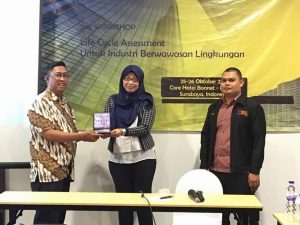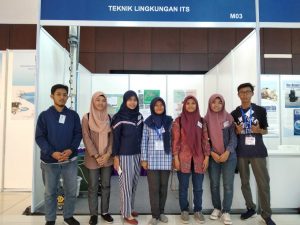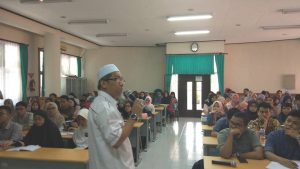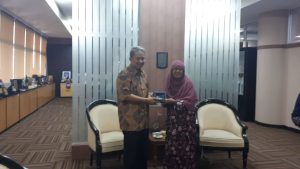Established in 1983 with the name of the Sanitation Engineering Study Program, as a development of the ITS Civil Engineering Department.
Then since September 23, 1996, the implementation of the Environmental Engineering Department was initiated with the issuance of the Decree on the implementation of the Environmental Engineering Department No. 4788 / D / T / K-N / 2010.
After the most recent Environmental Engineering Department received accreditation from the Asean University Network (AUN-QA), TL continues to strive to produce professional personnel who have broad environmental insights and master environmental engineering and management, including drinking water supply and processing technology, wastewater distribution and processing, management of Hazardous and Toxic Waste (B3), solid waste / garbage management, air pollution control and climate change, sanitation and phytoremediation, Environmental Impact Analysis (AMDAL), environmental management, environmental audits and clean production, occupational health and safety.
Level of Study and Field of Study
- Doctoral Program in Environmental Engineering (A Accreditation from the National Accreditation Board for Higher Education)
- Masters Program in Environmental Engineering (A Accreditation from the National Accreditation Board for Higher Education)
- Field of expertise Environmental Engineering Control and Management (RPMTL)
- Field of expertise Settlement Environmental Infrastructure Engineering (TPLP) which has developed into Environmental Sanitation Engineering (TSL)
- S1 Program in Environmental Engineering (A Accreditation from the National Accreditation Board for Higher Education)
Teaching Staff
The number of teaching staff is 28 people consisting of 5 Professors, 17 Doctors (S3), 6 Masters (S2) of whom 1 is continuing to the Doctors, as well as several lecturers from other departments who teach basic courses and general courses.
Educational Cooperation
- Master of Environmental Sanitation Engineering (MTSL) Department of Public Works
- Cooperation with Overseas Universities with student exchange schemes, scholarships, etc.
Research Cooperation/PPM
Soka University Japan, National Taiwan University of Science and Technology, Universiti Kebangsaan Malaysia, University Teknologi Malaysia, Department of Public Works of the Central Government, East Java Public Works Agency, East Java Bapedalda, East Java PDAB, Surabaya City PDAM, National Land Agency, Batu City Government, Malang Regency Government, Surabaya City Government, Bali Provincial Government, Lumajang Regency Government, Kupang Regency Government, East Java Settlement Technology Center, Surabaya City Industry Agency, Surabaya City Environmental Agency, East Java Environmental Agency, Probolinggo City Government, BEJIS Project AusAID, PT Unilever, PT Tjiwi Kimia, Several power generation companies steam power, PT Pakerin, Several engineering consultant companies.
National/International Department Awards
1. Joint-Research for Energy and Environment, SEED Project (ITS – Soka University, Japan), 2008-2010.
2. Innovative Decision Making Process Related to Water Supply and Sanitation, in collaboration with the European Union, 2005-2009.
3. Award for lecturer as National Outstanding Lecturer, DIKTI, 2010.




